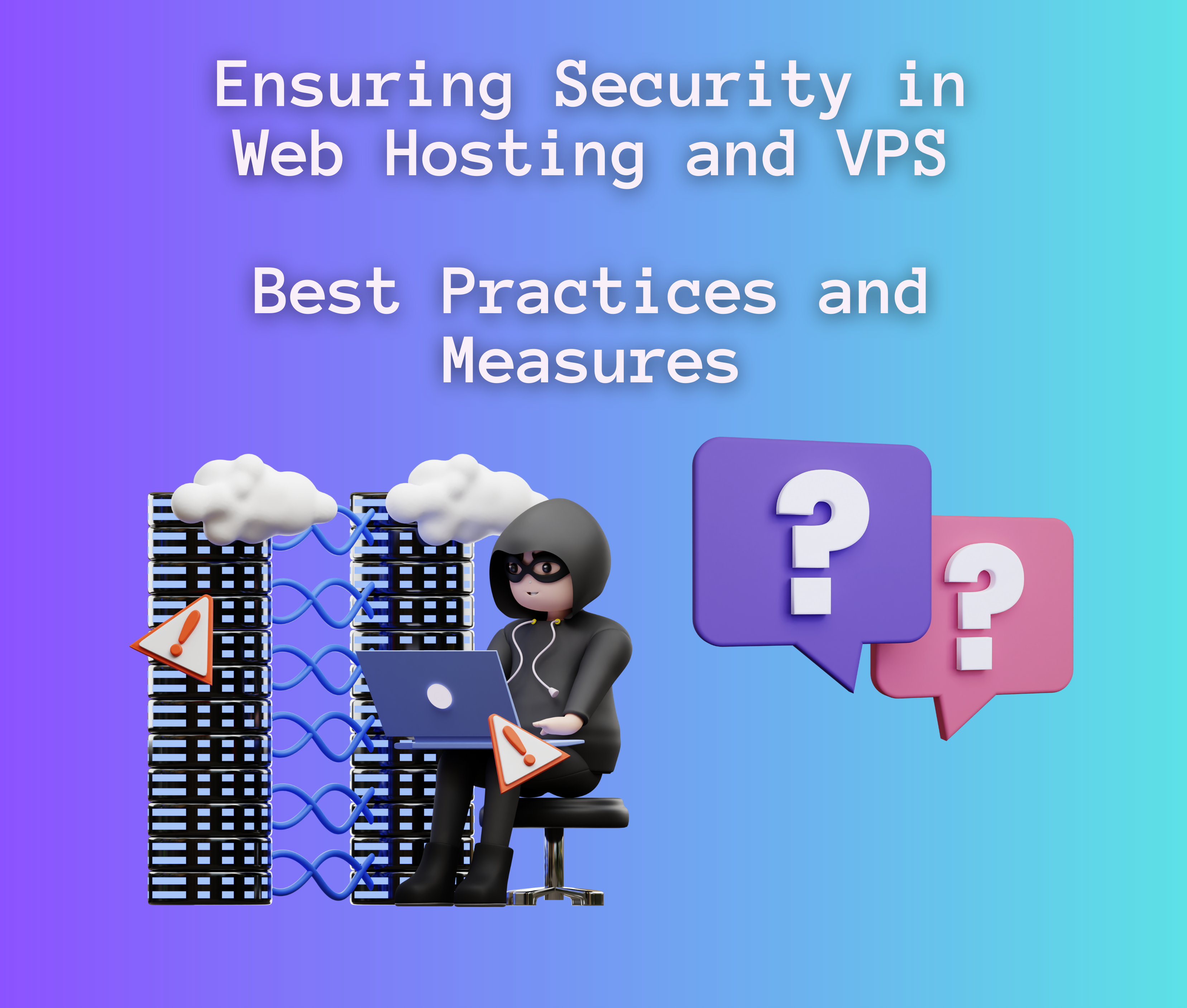When it comes to web hosting and VPS (Virtual Private Server), security is a critical aspect that cannot be overlooked. Website owners and businesses must prioritize implementing robust security measures to protect their data, prevent unauthorized access, and ensure a safe online experience for their users. In this article, we will explore the best practices and measures for ensuring security in web hosting and VPS environments while maintaining SEO compatibility.

1. Regularly Update Software and Applications: Keeping your software and applications up to date is vital for maintaining a secure web hosting and VPS environment. This includes the operating system, web server software, CMS (Content Management System), plugins, and any other components used. Regular updates often include security patches that address vulnerabilities and protect against potential threats.
2. Implement Strong Authentication and Access Controls: Strengthening authentication and access controls is crucial for preventing unauthorized access to your hosting environment. Enforce the use of strong, unique passwords for all user accounts, including administrator and FTP accounts. Implement multi-factor authentication (MFA) to add an extra layer of security, requiring users to provide additional verification in addition to their passwords.
3. Utilize Firewalls and Intrusion Detection Systems (IDS): Deploying firewalls and intrusion detection systems (IDS) is essential for safeguarding your web hosting and VPS environment. Firewalls act as a barrier, controlling incoming and outgoing network traffic and blocking unauthorized access attempts. IDS monitors network activity for suspicious behavior or intrusion attempts, providing real-time alerts for prompt mitigation of potential threats.
4. Conduct Regular Backups: Regularly backing up your data is essential for data recovery and maintaining the integrity of your website or applications. Implement automated backup solutions that store backups on separate servers or off-site locations. Regularly test the restoration process to ensure that backups are reliable and functioning correctly.
5. SSL/TLS Encryption and HTTPS Implementation: Implementing SSL/TLS certificates and enforcing HTTPS is vital for securing data transmission between your server and users' browsers. SSL/TLS encryption protects sensitive information, such as login credentials and payment details, from interception. Ensure that HTTPS is enabled for all web pages to provide a secure browsing experience, which can positively impact SEO.
6. Secure File Transfer Protocols: When transferring files to and from your web hosting or VPS environment, use secure file transfer protocols such as SFTP (Secure File Transfer Protocol) or SCP (Secure Copy Protocol). These protocols encrypt data during transfer, preventing unauthorized access or tampering.
7. Perform Regular Security Audits and Penetration Testing: Conducting regular security audits and penetration testing is essential for identifying vulnerabilities and assessing the overall security of your web hosting and VPS environment. Engage third-party security professionals to perform comprehensive audits and penetration tests, ensuring any weaknesses are promptly addressed.
8. Monitor Security Events and Log Analysis: Implement real-time security monitoring and log analysis to detect and respond to security incidents promptly. Monitor server logs, network traffic, and security events for signs of suspicious activity or unauthorized access attempts. Set up alerts or notifications to promptly inform you of potential security breaches.
Ensuring security in web hosting and VPS environments requires a proactive approach and adherence to best practices. By regularly updating software, implementing strong authentication, utilizing firewalls and IDS, conducting backups, implementing SSL/TLS encryption, secure file transfer protocols, performing security audits, and monitoring security events, you can significantly enhance the security of your hosting environment. Remember, a secure hosting environment not only protects your data but also builds trust with your users and positively impacts your SEO efforts.